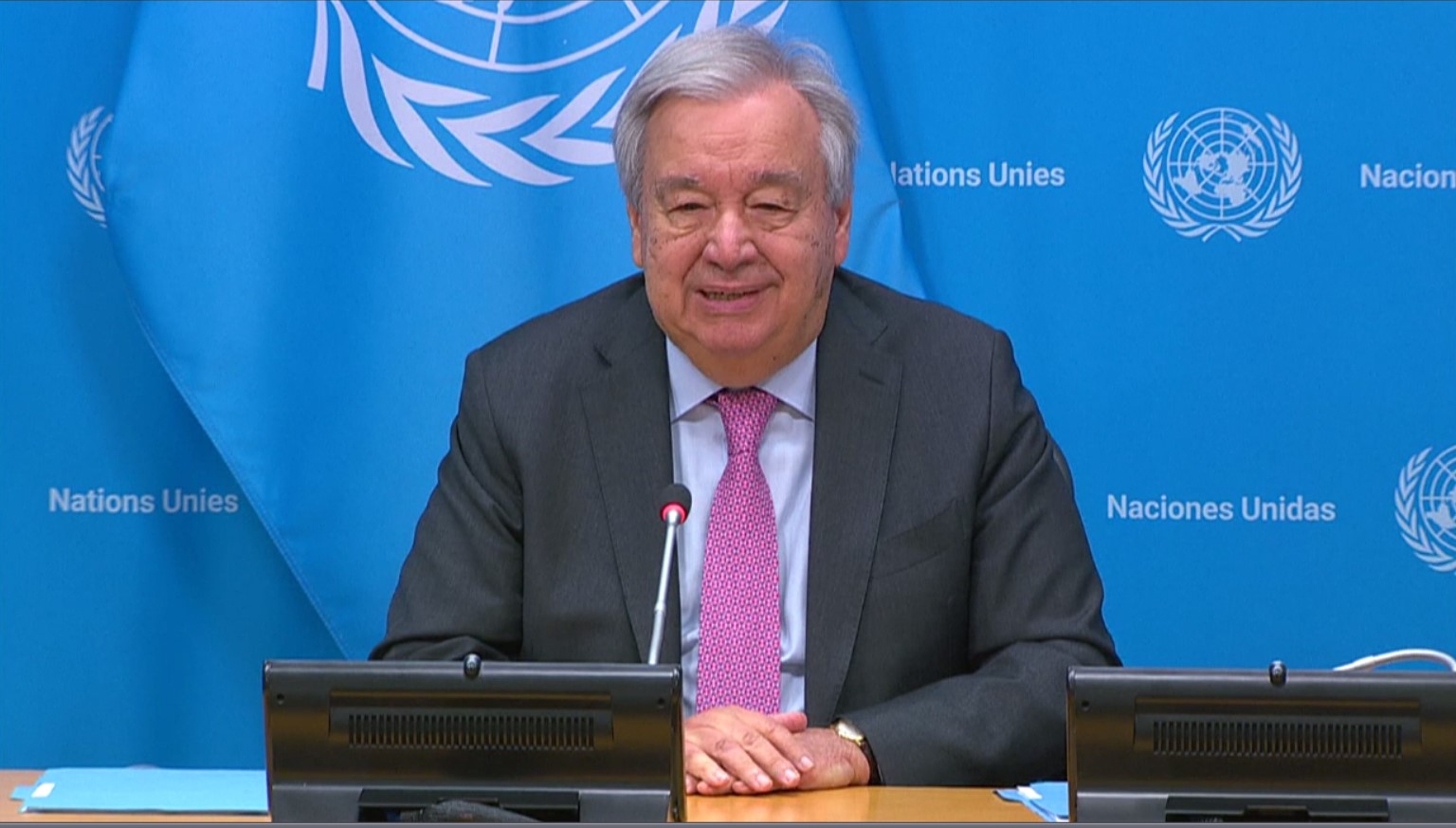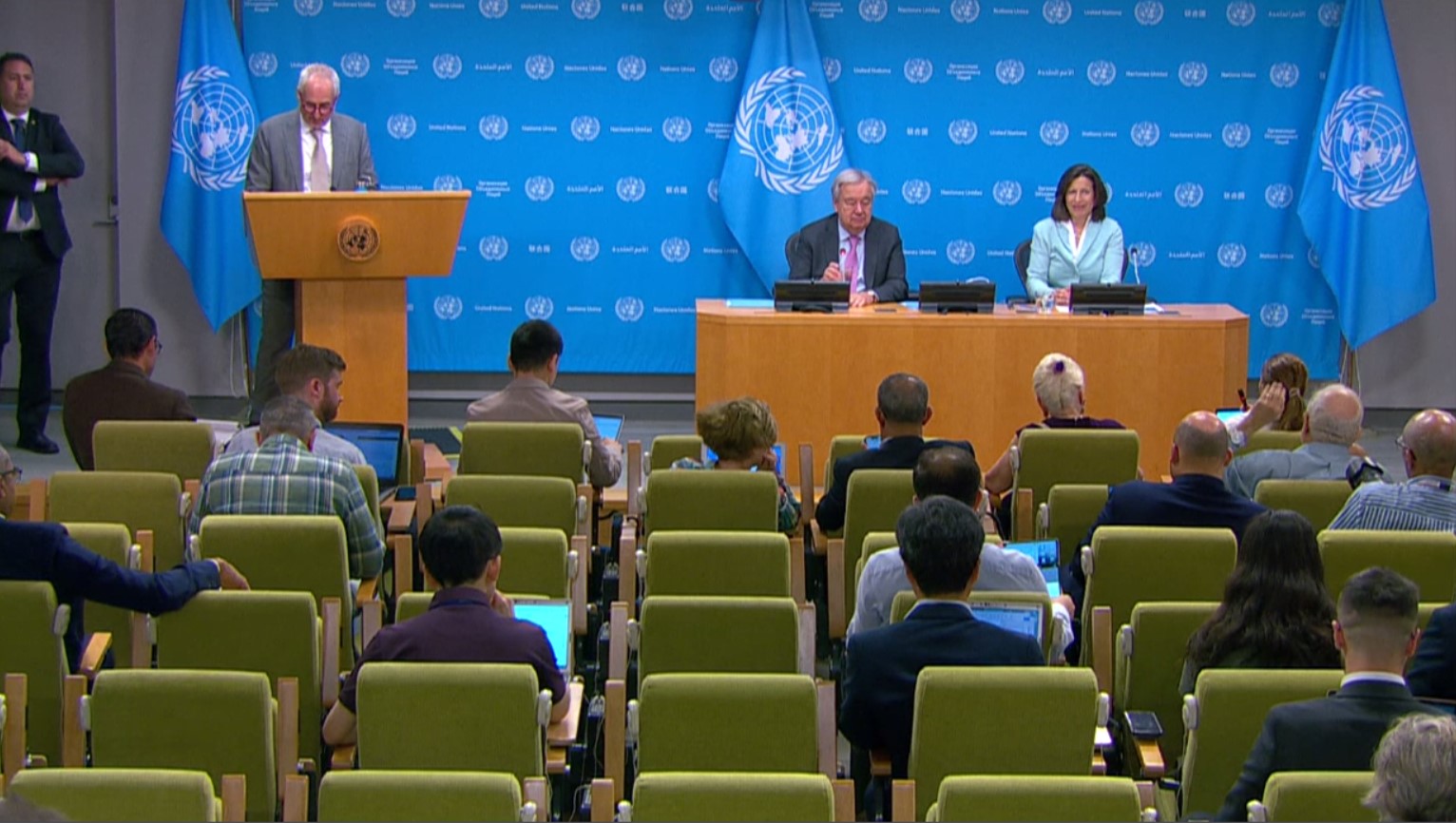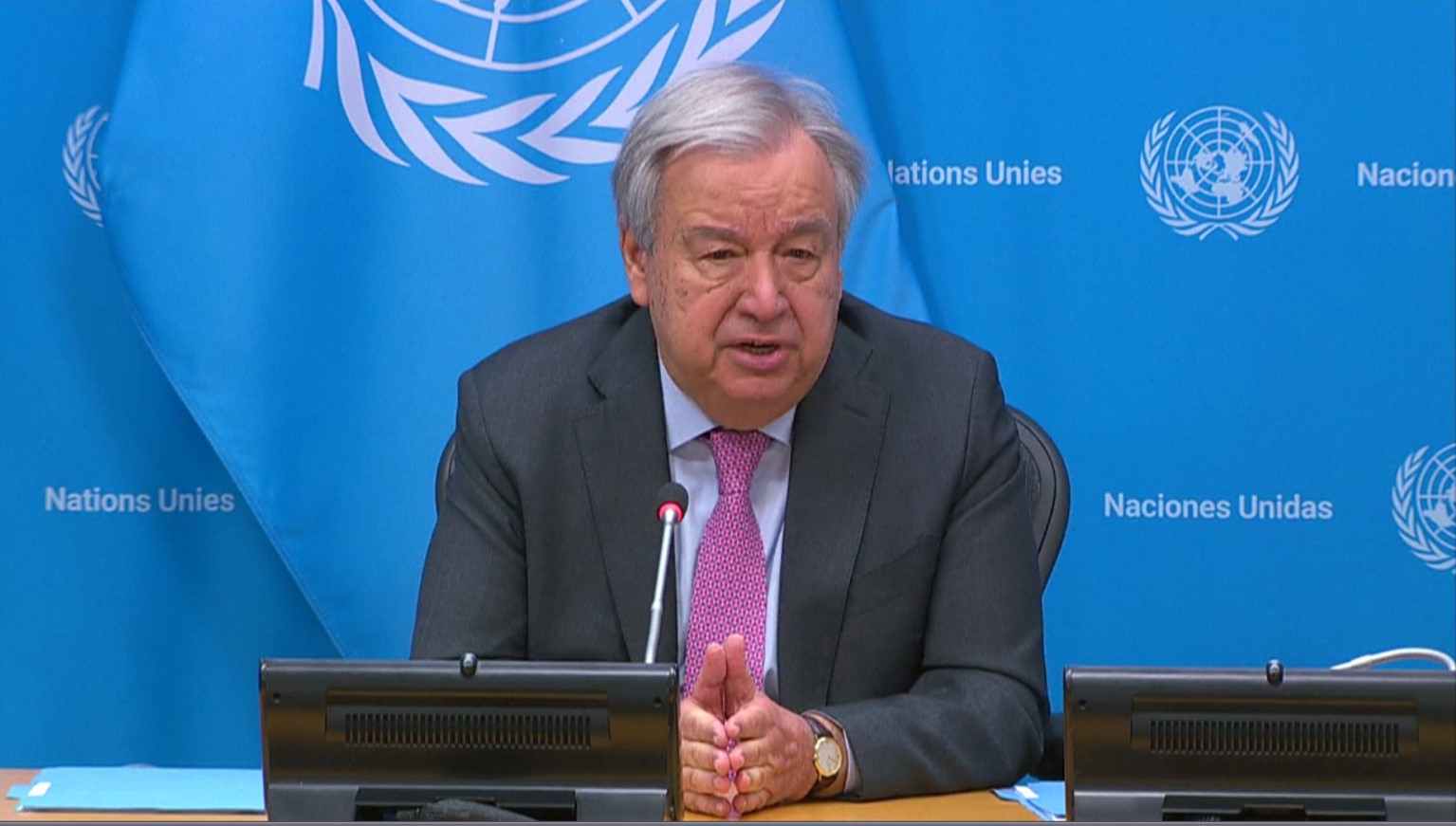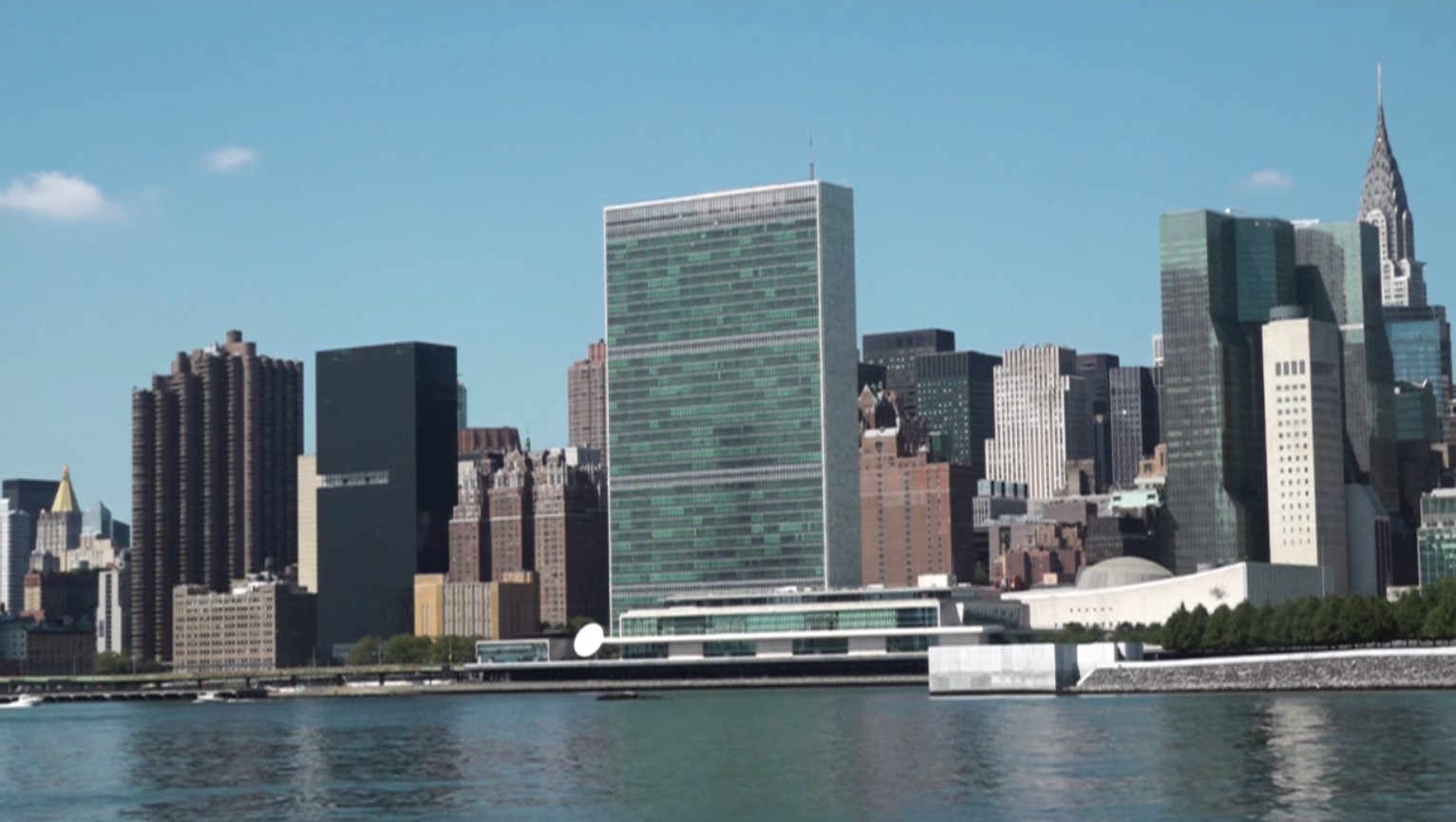Secretary-General António Guterres today launched a set of United Nations Global Principles for Information Integrity that calls for “an information environment that champions human rights and a sustainable future.”
Speaking one year after the launch of his report into information integrity on digital platforms, the Secretary-General put forward a framework for coordinated international action to make information spaces safer and more humane, one of the most urgent tasks of our time.


Misinformation, disinformation, hate speech and other risks to the information ecosystem are fueling conflict, threatening democracy and human rights, and undermining public health and climate action. Their proliferation is now being supercharged by the rapid rise of readily available Artificial Intelligence (AI) technologies, increasing the threat to groups often targeted in information spaces, including children.
Speaking to reporters today (24 Jun) in New York, Guterres said that the five five principles – societal trust and resilience; independent, free, and pluralistic media; healthy incentives; transparency and research; and public empowerment – are based on an overriding vision of a more humane information ecosystem.
“They provide a solid foundation for sustainable, inclusive development, climate action, democracy, and peace,” he emphasized.
Guterres explained that the United Nations Global Principles for Information Integrity are the result of broad consultations with Member States, youth leaders, academia, civil society, the private sector including tech companies, and the media.
Those consultations showed that much of the world shares our deep concern and is searching for solutions, he said.
The Secretary-General reiterated, “ The Global Principles lay out a clear path forward, firmly rooted in human rights, including the rights to freedom of expression and opinion.”
He urged governments, the tech sector, and other stakeholders to “listen to your people and your customers – and respond.”
Guterres said that he has a clear message - demand action.
“To the big tech companies - take responsibility,” the UN chief went on by saying that “acknowledge the damage your products are inflicting on people and communities. You have the power to mitigate harm to people and societies around the world. You have the power to change business models that profit from disinformation and hate.”
To advertisers and the PR industry, Guterres told them to “stop monetizing harmful content.”
He continued, “Strengthen information integrity; protect your brand; boost your bottom line. The climate crisis is a cause of particular concern. Coordinated disinformation campaigns are seeking to undermine climate action.”

“Creatives - don’t use your talents to greenwash. PR agencies – look for clients who aren’t misleading people and destroying our planet,” the UN chief added.
In his message to media outlets, Guterres said, “Raise and enforce editorial standards. Do your part to safeguard our future by providing quality journalism based on facts and reality. Find advertisers who are part of the solution, not the problem.”
To governments, the UN chief urges them to “commit to creating and maintaining a free, viable, independent, and plural media landscape. Guarantee strong protections for journalists. Ensure regulations uphold human rights. Refrain from drastic measures, including blanket internet shutdowns. Respect the right to freedom of opinion and expression.”
The United Nations Global Principles for Information Integrity stem from a proposal in Our Common Agenda, the Secretary-General’s 2021 report that outlines a vision for future global cooperation and multilateral action.
The Principles provide a resource for Member States ahead of September’s Summit of the Future.





